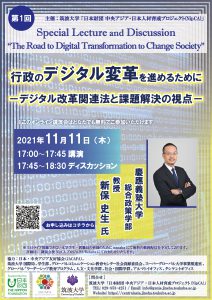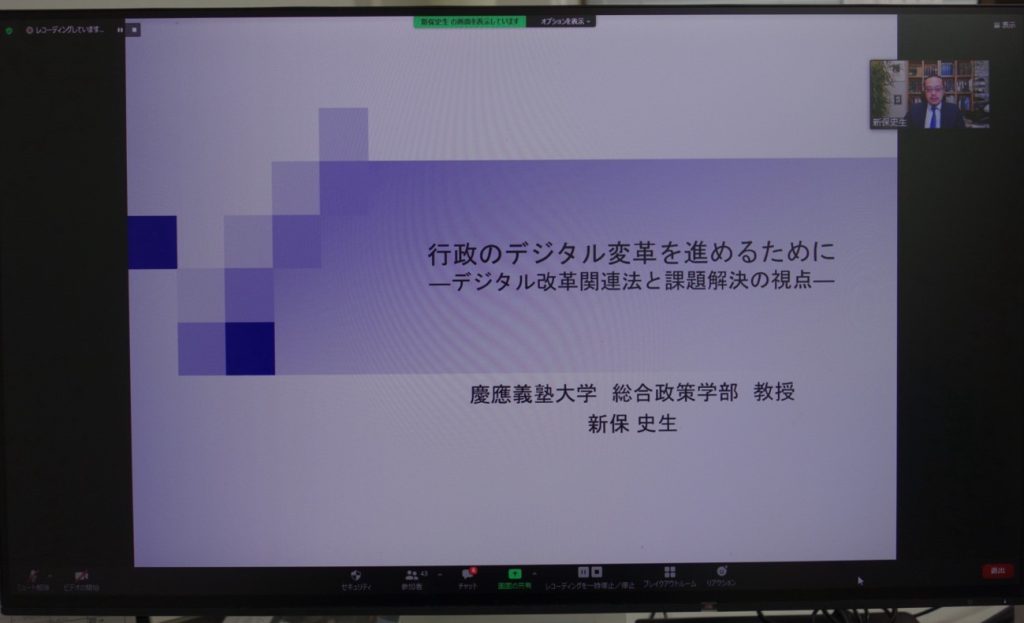On Thursday, November 11, 2021, NipCA project held the 1st Special Lecture and Discussion “The Road to Digital Transformation to Change Society” series. In this first session of our new initiative, we invited Dr. Shimpo Fumio, Professor of Keio University’s Faculty of Policy Management, and held a lecture titled “Advancing digital transformation in administration – Digital Reform-Related Laws and Problem-Solving Perspectives”, followed by a discussion with the participants.
After completing the doctoral program at the Graduate School of Law, Komazawa University, Professor Shimpo served as an associate professor at the Graduate School of Library, Information and Media Studies, University of Tsukuba, among other positions. Since 2013, he has been teaching at his current position at the Faculty of Policy Management, Keio University, where he specializes in constitutional law, information law, robotics law, and other subjects. In particular, he is known for his advanced research on AI networks and information ethics, and in this lecture, he spoke about the digital transformation (DX) of government as an issue for our society, and about various issues surrounding DX, including aspects such as legal frameworks.
In Japan, for more than 20 years since the Basic IT Law of 2000, legislation has been enacted to promote digitalization in various public sectors such as administration and education. It is said that this effort is not inferior to those of countries with advanced digitalization, such as European nations. However, administrative DX in Japan has not progressed much. Regarding this matter, unique problems in Japan and public opinions on the current system were introduced. For example, it is said that one of the principles in digital procedures is that all procedures can be done seamlessly using digital technology in one place. However, Japanese administrative procedures are reportedly in a state of incomplete digital transformation (DX) at present because this principle has not been thoroughly implemented. The culture of using personal seals (hanko) and the continued use of fax machines for communication are typical examples. In addition, the insufficiency of communication in conveying to citizens how various administrative procedures have been simplified through digitalization, as well as concerns about state surveillance as seen in opinions on linking My Number with bank accounts, were also cited as factors delaying the digital transformation (DX) of administrative procedures.
After these issues were raised, a discussion was held between the lecturer and the participants. Professor Shimpo accurately answered a series of questions from participants, such as “What are the issues with government communication regarding DX, and what kind of communication should be emulated?”, “When the government uses avatars, are they anonymous, and where does the responsibility lie?”, and “Where should the government cloud be prepared?” During these exchanges, many participants who had considered digitalization as a positive thing seemed to be taken aback by Professor Shimpo’s reverse thinking, when he stated, “In Japan, where natural disasters are frequent, cash can be useful in times of emergency, so it’s not necessarily correct to completely digitalize everything.” We will continue to hold the Special Lecture and Discussion “The Road to Digital Transformation to Change Society” to deepen our understanding of digital technology in the future, so please look forward to it.
The video of this lecture was streamed on manaba from December 2 to 12, 2021.





